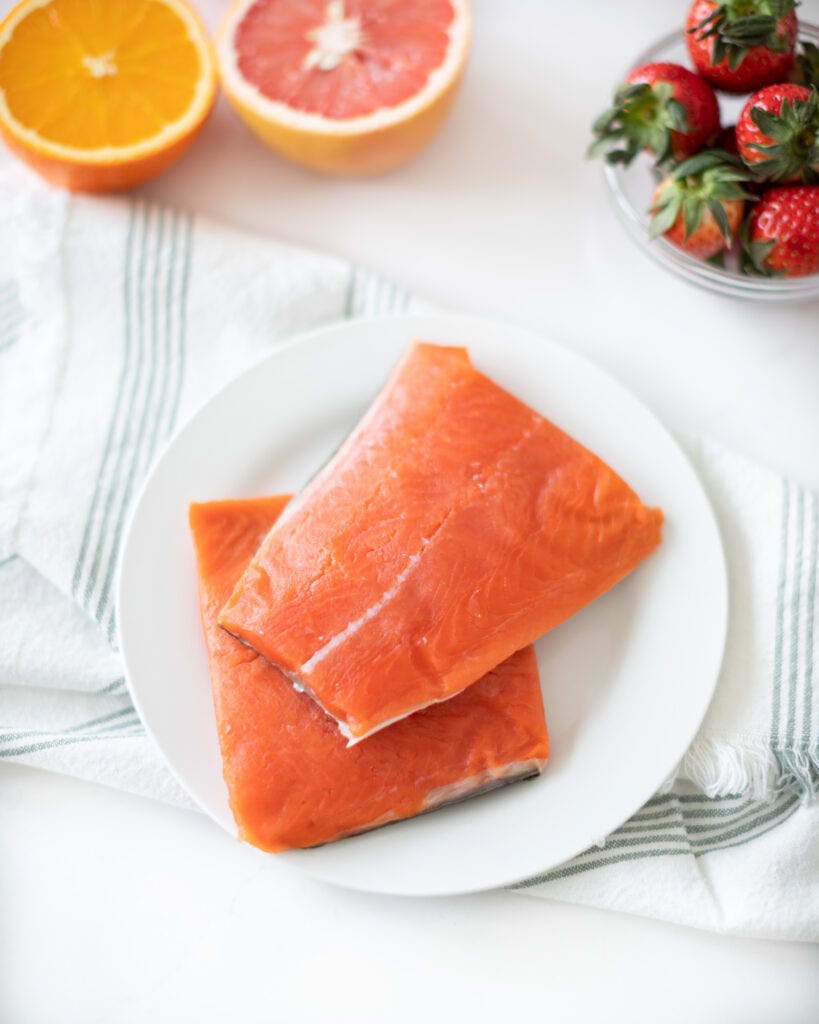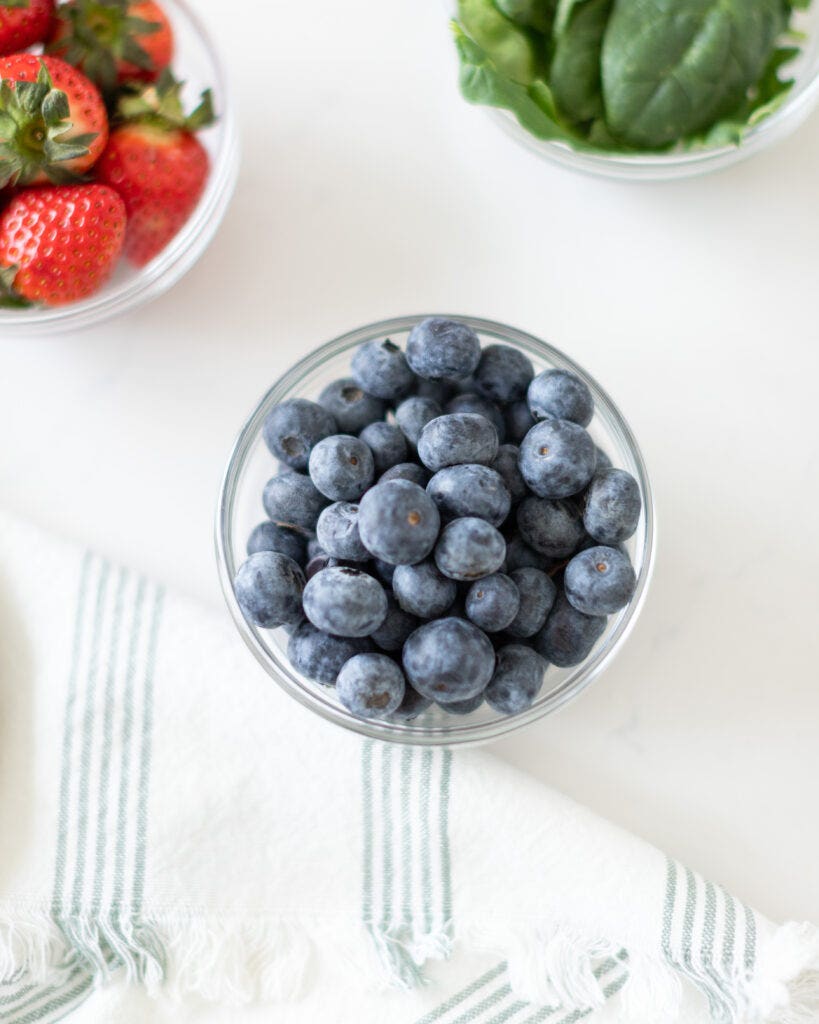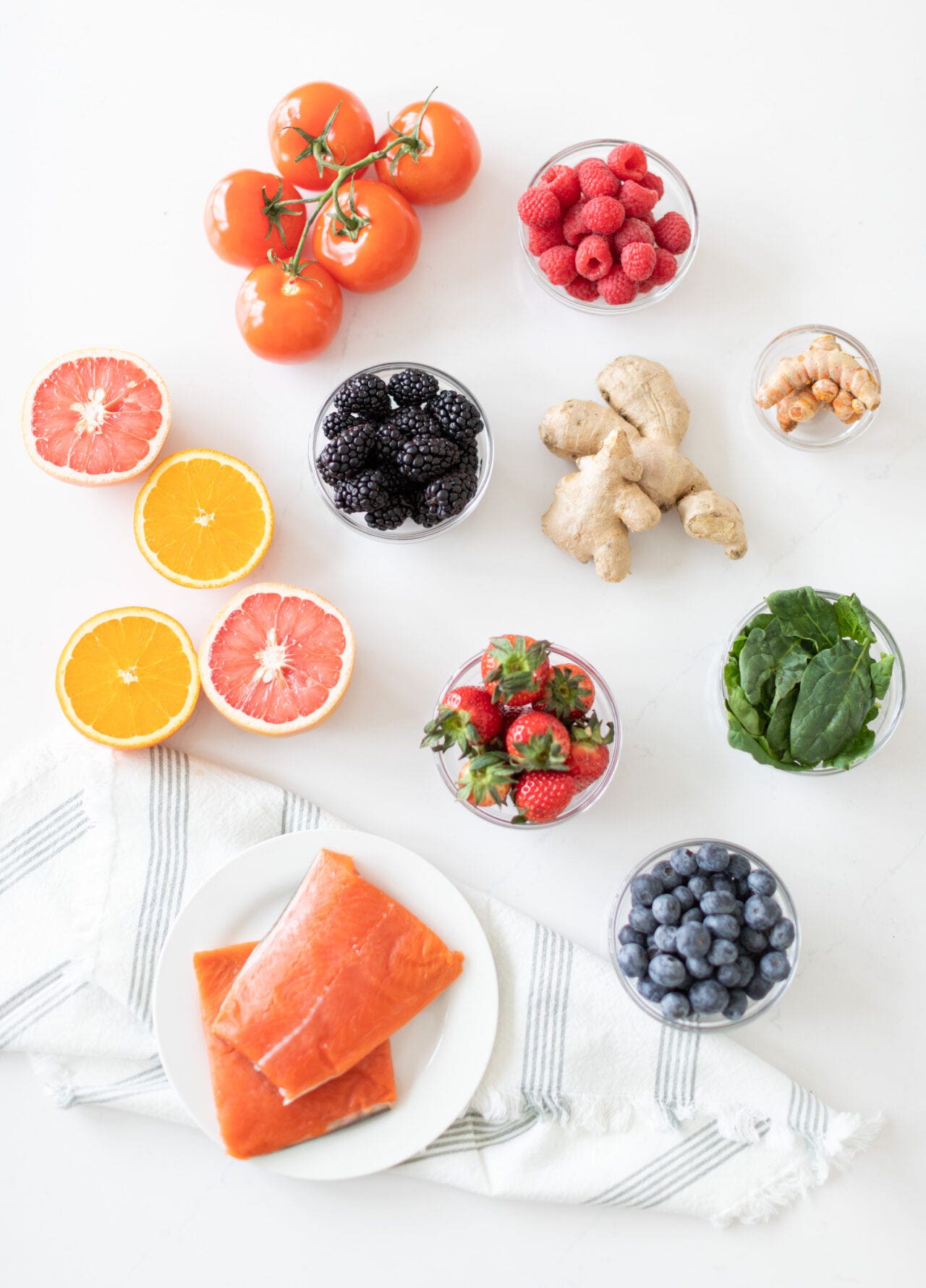If you’ve ever asked yourself if there is an optimal way to eat for brain health, the answer is a resounding yes! Research shows that nutrition plays a vital role in keeping our brains healthy as we age; an observational study showed that following the pattern of eating suggested in the MIND diet can reduce the risk of Alzheimer’s disease by up to 53 percent. This is an introduction to the MIND diet and some helpful guidelines to get you started.

What is the MIND Diet?
The MIND diet is an acronym that stands for Mediterranean-DASH Intervention for Neurodegenerative Delay. It is a combination of the DASH (Dietary Approaches to Stop Hypertension) diet and the Mediterranean diet, and is specifically designed for maintaining healthy brain function, emphasizing foods that help slow brain aging and positively impact brain health. While there is no known prevention for Alzheimer’s disease, the MIND diet is considered to be the best dietary approach to slow brain aging and help delay the onset of Alzheimer’s disease. Ten key foods are identified in the MIND diet that are encouraged and are rich in compounds believed to protect and improve overall brain health. An active effort to include these foods in your diet may slow the neurological degenerative process.

Why does the MIND diet have a positive impact?
While the exact pathways for the positive effects of the MIND diet are still under investigation, the creators of the diet (nutritional epidemiologist, Martha Clare Morris and her colleagues) believe the cognitive benefits of this diet are result from the following:
Decrease of oxidative stress
Oxidative stress is caused by molecules in our bodies called free radicals. Free radicals in large quantities in the body can cause damage to our cells, and our brains are particularly vulnerable to their effects. Free radicals are not inherently all bad, but it is important to have an adequate amount of antioxidants to protect the cells in your body from the damage that EXCESS free radicals may cause. Guess what the MIND diet is high in…. antioxidants!
Decrease inflammation
Excess inflammation in the body can contribute to chronic disease, and is particularly detrimental to brain health. There are many ways to incorporate anti-inflammatory foods into your diet, as the MIND diet does.
Modify Beta-Amyloid proteins
Beta-amyloid proteins are a type of protein found naturally in the body, but the harm comes when an excess of these protein fragments start accumulating into a plaque that forms in the brain. In Alzheimer’s disease, abnormally high levels of this naturally occurring protein form plaques that disrupt cell function by collecting between neurons. This particular plaque collection between neurons disrupts communication between brain cells and can ultimately cause brain cell death. While we do not know the cause of Alzheimer’s disease, beta-amyloid proteins appear to play a role.

Top Foods to Emphasize on the MIND diet
Leafy greens: 6+ servings a week (1 serving = 1 cup raw, 2 cups cooked) While this may sound intimidating, try making a big salad to last a few days, throwing kale or spinach into your smoothie or tossing greens into scrambled eggs to increase your intake.
- Think kale and spinach, or collards and chard to expand your horizons. Dark leafy greens are high in vitamins C, and folate, along with flavonoids and carotenoids, which are antioxidants that protect the cells from damage. Beta-carotene is a precursor to vitamin A in your body that helps with cellular growth. Folate is also known as vitamin B-9, also important for cell growth and function. When thinking about neurodegeneration these two antioxidants keep the neurons in the brain firing properly.
Vegetables: 7+ servings per week. In addition to your dark leafy greens, you should still be eating other veggies as well (aim for half of your plate as veggies).
- Growing up we were always told to eat our vegetables, and the logic is sound. High in a multitude of essential vitamins and minerals (including our previously mentioned friend, folate), many vegetables also contain other antioxidants like flavonoids. Key to reducing oxidative stress as well as healthy cell growth and function, the nutritious compounds in vegetables are key to the MIND diet.
Berries: 2+ servings a week
- Swapping in berries for dessert or a sugary snack is the perfect way to incorporate some sweetness into the MIND diet (note that other fruit has not shown the same impact). Berries are loaded with antioxidants, specifically flavonoids. More specifically, flavonoids strengthen the connection between neurons to improve communication (think back to when we mentioned plaque build-up disrupting communication between neurons). Wash them up and store them in a resealable container in the fridge for an easy snack or addition to smoothies. Frozen berries are also a great choice.
Nuts: 5+ servings of nuts per week. You may be wondering what a “serving” of nuts really is – it equals about one ounce of nuts, roughly a small handful, depending on the variety you’re snacking on.
- Nuts are high in vitamin E, an antioxidant that helps to fight off free radicals, particularly in brain cells. Other nuts such as walnuts provide anti-inflammatory omega-3 fats. Incorporating a variety of nuts is a good idea, but we love the fact that walnuts are shaped like the brain and are higher in omega-3 fats.
Olive oil: try cooking with predominantly olive oil.
- Olive oil is rich in anti-inflammatory compounds, and is a primary component of the Mediterranean diet for a reason. When choosing your olive oil look for “extra-virgin olive oil” or the trendy “EVOO”. The label of extra virgin simply means that the oil is less refined and contains higher amounts of the polyphenols. It is safe to cook with up to 400 F.
Beans: 4+ servings per week
- Beans may seem like a less intuitive food for the MIND diet, but in reality, they are full of protein, fibre, minerals, and antioxidant and anti-inflammatory compounds. The high protein and fiber content in beans make them slow to digest, which is actually great for the brain, as they can provide a steady source of glucose (for optimal brain function) for hours at a time.
Whole grains: 3 servings per day
- The great news is that you don’t need to say goodbye to your pasta, oatmeal or rice: simply opt for whole grain varieties. When incorporating your grains think oatmeal, quinoa and wholewheat or wholegrain bread. Whole grains are high in magnesium which is essential to healthy brain function by protecting nerve cells from over-stimulation.
Fish: >1 per week
- Fish is essential in the MIND diet due to its high omega-3 fatty acids content. These fatty acids are anti-inflammatory and actually help build brain matter. Fatty fishes have a higher fatty-acid content so aim for varieties such as salmon, trout and mackerel.
Poultry: 2+ times a week
- Mixing in chicken or turkey at least twice a week can significantly up your choline (another B-vitamin) which is critical to brain function. Choline is a precursor for a neurotransmitter called acetylcholine that is essential for brain function, specifically, memory. If you don’t eat poultry simply substitute with beans.
Red Wine: (on occasion) No more than one glass per day.
- Of course, too much alcohol is not good for the brain (or liver), but red wine has been studied for the compound, resveratrol. Resveratrol has unique antioxidant and anti-inflammatory properties that may offer some protection against Alzheimer’s.

Foods to limit on the MIND Diet
There are some foods that are discouraged on the MIND diet due to their observed role in promoting inflammation and/or negative impact on circulatory health.
Butter and hard margarines and cheese:
- In most cases you can use a healthier source of fat, such as olive oil. Butter and hard margarines are a source of saturated fat, and are therefore to be minimized to 1 tablespoon a day or less for improved cognitive function. Cheese should be limited to once a week for those very same reasons.
Red meat and processed meat:
- Think about swapping out some of your red meat with fish or a vegetarian meal full of beans! Aim for no more than 2-3 servings a week of red meat.
Fried foods fast foods, pastries and sweets:
- There is evidence to suggest that these foods may be pro-inflammatory. Save them for special occasions!

